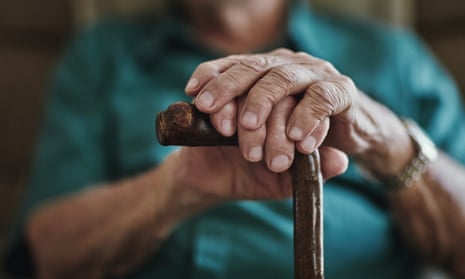More than 50,000 older Australians have died while on the waiting list for home care in recent years, data which Labor says shows the system is still in crisis.
The federal government last year announced a major package to alleviate the pressure on home care and cut the number of people who have been approved for a home care package but are still waiting to receive it.
Government data shows the time people spend on the waiting list, known as the National Priority System, is still significantly high despite substantial improvements in recent years. Those funded for the highest level of support are still waiting on average six to nine months for their approved package, down from 12 months or more in 2020.
The data also shows that, despite the improvements, thousands of older Australians on the NPS are still dying before receiving their approved home care.
In the last six months of 2021, 3,802 people on the NPS died before receiving the home care package they had been approved for. More than 8,000 died in the 2020-21 financial year, and 10,563 died in 2019-20. All up, more than 50,000 older Australians have died while waiting for home care since 2017-18.
There is no suggestion the deaths were caused by the delays to home care and the government says it would be misleading to draw any causal link. Senior health officials also say the number of deaths is proportionate to the general rate of deaths in the community for older age cohorts.
But Labor’s Mark Butler said the delays, which he described as a “tragedy” and a “national disgrace”, showed continuing problems in the wait to access home care.
“Most Australians want to age in their own home but the system that’s supposed to help them do that is in crisis,” he said.
“There are still tens of thousands of older Australians waiting for Home Care Packages. 50,000 have died waiting since July 2017.”
“This is a national disgrace.”
A spokesperson for Colbeck said it would be misleading to suggest the deaths occurred “as a result of having to wait for a home care package”.
“As Department of Health secretary Prof Brendan Murphy noted during Senate estimates, the number of people over the age of 75 who have died while on the waiting list for a home care package is exactly the same proportion of people who have died in that aged bracket in the general community,” the spokesperson said.
“Importantly, the National Prioritisation System didn’t even exist under the last Labor government.”
The Coalition has accused Labor of announcing nothing on home care, while pointing to its own funding of 80,000 home care packages in the last budget.
The new packages are coming online progressively until 2023 and are helping to reduce the waiting list.
But while the funding is largely welcomed by the sector, peak bodies have repeatedly warned that a significant staffing crisis is hampering the actual delivery of funded services.
Leading Age Services Australia on Wednesday questioned a claim by the government that the workforce had in fact grown by almost 15% in five months. That claim was at odds with the severe staffing shortages LASA’s members were reporting.
“We are not aware of any data that reflects this level of growth in the home care workforce,” its chief executive, Sean Rooney, told the Guardian.
The largest home care provider, myHomecare Group, said its staff were at breaking point and that the Coalition’s $800 staff bonus was doing nothing to alleviate the crisis.
